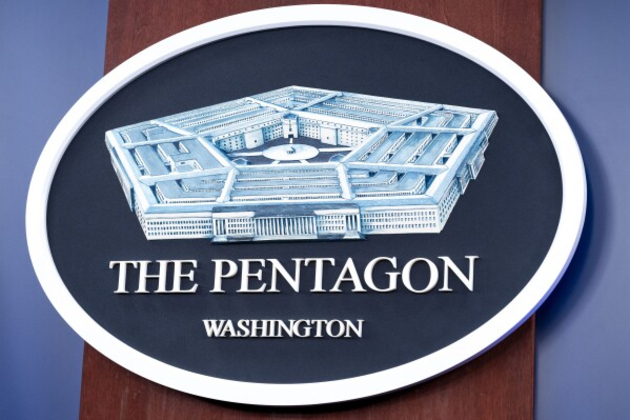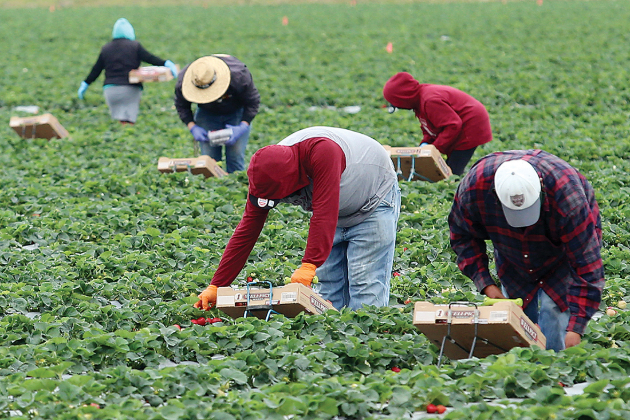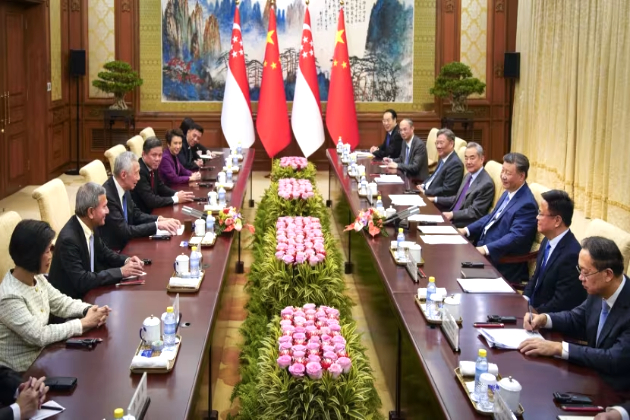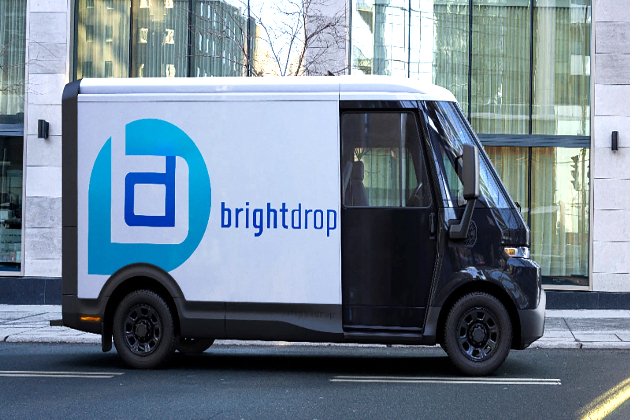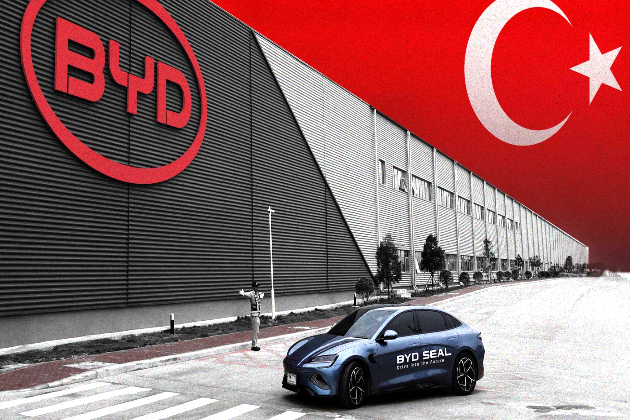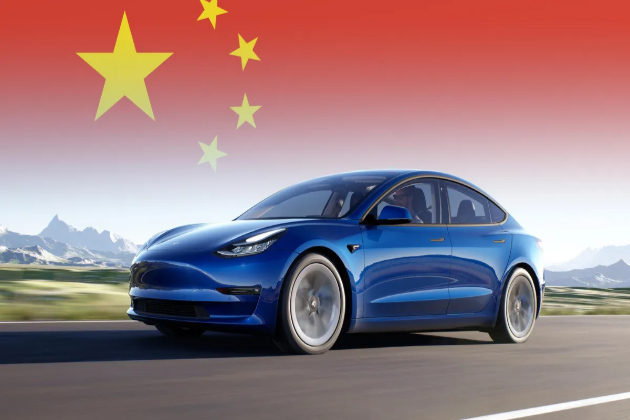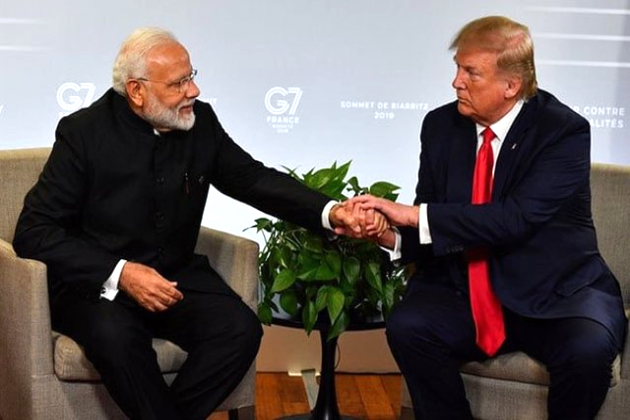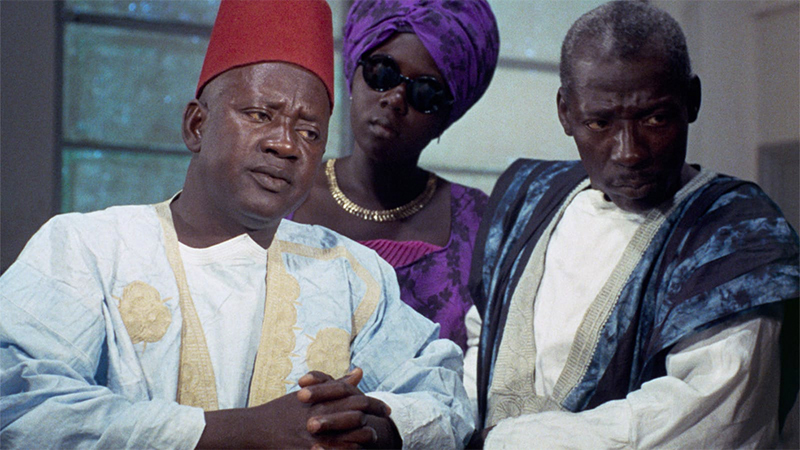Brussels' Sanctions Backup Plan; Visa-Free Travel Rules Face Overhaul
RFE
15 Apr 2025, 13:21 GMT+10
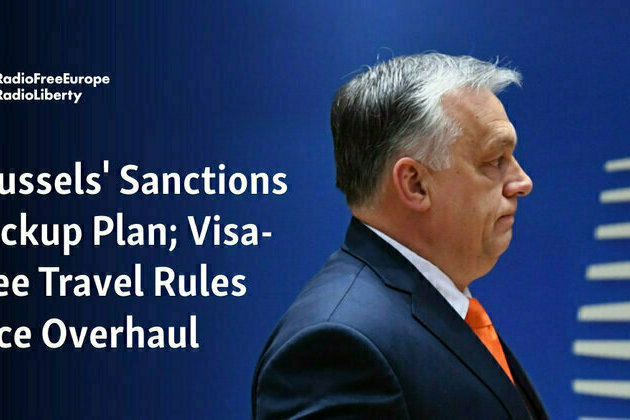
Welcome to Wider Europe, RFE/RL's new newsletter focusing on the key issues concerning the European Union, NATO, and other institutions and their relationships with the Western Balkans and Europe's Eastern neighborhoods.
I'm RFE/RL Europe Editor Rikard Jozwiak, and this week I am drilling down on two issues: the EU getting legally creative on Russia sanctions, and widening the scope of its visa liberalization suspension mechanism.
Embed
share
Wider Europe Briefing: Brussels' Sanctions Back-Up Plan; Visa-Free Travel Rules Face Overhaul
byRFE/RL
Embed
share
The code has been copied to your clipboard.
The URL has been copied to your clipboard
Share on Facebook
Share
No media source currently available
0:00
0:11:42
0:00
Direct link
128 kbps | MP3
64 kbps | MP3
Pop-out player
Briefing #1: The EU's Creative Plan To Circumvent Hungary's Sanctions Veto
What You Need To Know:Extending sanctions against Russia has been one of the most pressing issues for the European Union, especially this year. These rollovers happen every six months and are split into two groups: sectoral sanctions -- such as import bans on various Russian goods -- and listings, meaning visa bans and asset freezes on more than 2,500 Russian individuals and firms.
The sectoral sanctions come up for renewal in January and July, while the listings are reviewed for prolongation in March and September. That adds up to four decisions each calendar year, all of which must be taken unanimously by the 27 EU member states.
In both the January sectoral renewal and the March listings rollover, Hungary -- long critical of EU sanctions on the Kremlin -- toyed with the idea of withholding approval. In the end,Budapest gave the green light, but not without securing some concessions from Brussels.
EU officials in Brussels told me there is already concern about the upcoming extension of sectoral sanctions in July and what Budapest might demand.
The issue is further compounded by a broader question about the West's sanctions policy toward Moscow and the ongoing cease-fire talks between Russia, Ukraine, and the United States.
Sanctions relief, in some form, has been dangled as a potential carrot in front of the Kremlin -- at least from Washington's side -- even though the Europeans, who are not involved in the talks, have dismissed the idea for now.
The question is if that will still hold in the summer.
"Three months is a lifetime in politics, and by that time Trump might be tired of Russia and ramping up sanctions instead," said one EU official I spoke to, though they also admitted more EU capitals could be tempted to scale down.
The ever-present threat of a transatlantic trade war hitting EU economies might, according to diplomats, reignite calls to ease sanctions on things like Russian gas, aluminum, steel, and broader trade with Moscow.
Deep Background:In order to circumvent a potential Hungarian veto this summer or to prevent other member states from cherry-picking elements they want removed, Brussels' brightest legal minds are now poring over legal texts to come up with a Plan B, in case Plan A -- a "clean" prolongation -- proves impossible in July.
And they might have found one.
The idea was already floated during the height of the listings rollover process in March. It remains untested, and it's questionable whether it's fully legal. It's also complicated, at least for those outside the "Brussels bubble." But it looks like this: EU sanctions consist of two legal documents, a decision and a regulation. These texts are essentially identical and function together; member states agree and adopt a decision, which is then implemented via a regulation.
The regulation must be extended every six months by unanimity, the decision does not. In fact, the decision remains in force unless a qualified majority votes to repeal it.
That would mean sanctions could stay in place without needing a formal extension, and it would sidestep Hungary's big opportunity to blackmail" the rest of the club on this.
Drilling Down
- This is very much a fallback option, and a temporary one, according to diplomats I've spoken with. Hungary, and potentially others, would likely take the EU to court over it, as the approach would be unprecedented. As one diplomat put it: Happening on very shaky legal grounds, as we always have used unanimity to prolong sanctions -- that's just the way this has always worked."
- But there are other Plan Bs in the works as well. Perhaps the most obvious involves the European Commission proposing more sanctions in the coming weeks, which would mark the 17th sanctions package since Russia's full-scale invasion of Ukraine more than three years ago.
- But the trick is that these new sanctions wouldn't actually be adopted. Instead, they'd be "horse-traded" in exchange for Hungary agreeing to the general sanctions rollover. In that scenario, Budapest could claim a win in that no new sanctions would be approved, while others would at least secure a prolongation of existing sanctions until the end of the year.
- Another potential avenue would be to let the sanctions lapse, but to compensate for this by raising tariffs on Russia across all equivalent economic sectors. This type of decision wouldn't require unanimity, so it could fly, but what would the bloc do, for example, with all the export restrictions it has already imposed on Russia?
- One option would be to let EU sanctions expire but replicate the same measures at the national level. However, far from all member states have national sanctions legislation and instead rely on a European framework. As a result, implementation would very soon become patchy and inconsistent across the bloc.
- There is also another potential dilemma. Apart from sanctions extensions, most EU member states want the bloc to open accession talks with Ukraine in June at the very latest.
- This means that another potential Hungarian veto would need to be overcome around the same time as the sanctions one. It's possible that some frozen EU funds withheld from Budapest over rule-of-law concerns may need to be heated up and sent its way to get both issues across the line.
Briefing #2: Suspending EU Visa Liberalization To Become Easier
What You Need To Know:The European Union looks set to sharpen its visa suspension mechanism later this year, making it easier for Brussels to revoke visa-free travel for citizens of the 61 countries that currently enjoy it -- including all the EU hopefuls in the Western Balkans, as well as Georgia, Moldova, and Ukraine.
The proposal to list more reasons for suspending visa-free travel was initiated by the European Commission back in 2023, and the Council of the EU -- which represents the 27 member states - already adopted its position on the matter a year ago. However, due to the European Parliamentary elections in June 2024 and a heavy backlog of legislation, the European Parliament only recently obtained its negotiation mandate.
Last week, the first trialogue between the three institutions took place on the proposed legislation, with the goal of reaching an agreement during the Polish Presidency of the EU Council, which runs until the end of June. If all goes well, the new legislation should be up and running in early autumn.
Deep Background:So why is this happening now?
Essentially, the bloc is becoming much more hard-nosed about visa liberalization, reflecting a broader shift: first, to combat any form of illegal migration into the EU; and second, to potentially use visa policy as a political tool to pressure third countries.
Visa liberalization -- which in this case includes all EU member states except Ireland, as well as non-EU countries Iceland, Liechtenstein, Norway, and Switzerland -- has long been one of Brussels' most significant political carrots, particularly for countries in its neighborhood.
It allows nationals from third countries to visit the EU for up to 90 days in any 180-day period without a visa. Kosovo was included on the list in early 2024 and Georgia and Ukraine in 2017 -- moves that were celebrated in all these countries.
To threaten to withdraw the privilege can therefore be seen as a real stick.
The current suspension mechanism, in place since 2018, can be triggered in cases of clear abuse -- for example, a surge in third-country nationals overstaying the 90-day limit or using the liberalization of travel to seek asylum in the EU. So far, the bloc has only suspended visa liberalization once: first temporarily, then permanently, for the South Pacific nation of Vanuatu.
Drilling Down
- So, what changes are likely in store? Broadly speaking, there are four key areas of change, as Brussels aims to make the visa suspension mechanism a more credible deterrent. First, visa liberalization could be suspended if there is a perceived lack of alignment between a visa-free third country and the EU's general visa policy.
- This was the case in 2022, for example, when Serbia allowed visa-free travel for citizens of countries such as Burundi, India, and Cuba. Brussels suggested that many of those individuals were using Serbia as a backdoor into the EU. After pressure from the European Commission, Belgrade dropped some of these arrangements. Under the proposed legislation, however, such behavior could be punished more readily.
- Another reason for suspending visas is so-called hybrid threats. While still rather theoretical, this provision is inspired by cases such as Russia and Belarus, which the EU has accused of transporting migrants from Africa and Asia to EU frontiers, like Poland and Lithuania's borders.
- Now, the EU's visa facilitation agreements with both Moscow and Minsk have already been suspended for several years, due to Russia's invasion of Ukraine and Belarusian strongman Aleksandr Lukashenko's crackdown on the opposition. However, if another visa-free country attempts a similar tactic, the new mechanism could be triggered in response.
- Thirdly, if a country operates an investor citizenship scheme -- allowing individuals to buy citizenship without any genuine link to that country -- then visa liberalization with the EU could also be halted in the future.
- However, the fourth new ground for suspension is perhaps the most interesting one, as it relates to the EU's political relations with third countries. The draft legislation states that the suspension mechanism can be triggered in cases of serious human rights violations and abuses" or serious breaches of international law and standards, including human rights law and noncompliance with international court decisions and rulings."
- If you ask EU officials, their reading has always been that a democracy criterion" exists when it comes to visa liberalization -- but it has never been clearly spelled out what exactly this entails.
- Another interesting and new aspect is that triggering the mechanism in this case should be the exclusive prerogative of the European Commission, after consultation with EU member states, as it deals with the external relations of the bloc.
- Ultimately, however, it would still be up to the member states -- via a qualified majority -- to suspend visa liberalization with a third country. As EU officials put it, this remains the nuclear option when all others have been exhausted," since the bloc is generally reluctant to penalize a country's entire population rather than its government.
- That's why, earlier this year, the EU chose to suspend visa liberalization for Georgian diplomatic passport holders only, following democratic backsliding in the Caucasus country. Still, the option of targeting the entire population remains on the table -- and with the future expanded scope of the suspension mechanism, the bloc is clearly sharpening its toolbox.
Looking Ahead
This week is less eventful in Brussels as we are approaching Easter, but look out for the meeting in the White House on April 17 between US President Donald Trump and Italian Prime Minister Giorgia Meloni.
Meloni is often considered to be one of Europe's Trump whisperers," meaning that she has the American president's ear, but this has not prevented transatlantic tensions over trade or differing views on Russia's war in Ukraine.
That's all for this week!
Feel free to reach out to me on any of these issues @RikardJozwiak, or on e-mail atjozwiakr@rferl.org.
Until next time,
Rikard Jozwiak
If you enjoyed this briefing and don't want to miss the next edition subscribehere.
 Share
Share
 Tweet
Tweet
 Share
Share
 Flip
Flip
 Email
Email
Watch latest videos
Subscribe and Follow
Get a daily dose of Africa Leader news through our daily email, its complimentary and keeps you fully up to date with world and business news as well.
News RELEASES
Publish news of your business, community or sports group, personnel appointments, major event and more by submitting a news release to Africa Leader.
More InformationInternational
SectionUS Defense Secretary Pete Hegseth Cancels $5.1B IT Contracts
WASHINGTON, D.C: U.S. Defense Secretary Pete Hegseth has canceled several technology service contracts worth US$5.1 billion. These...
Trump proposes legal path for undocumented farmworkers
WASHINGTON, D.C: U.S. President Donald Trump said this week that farmers might be allowed to ask the government to keep some farmworkers...
Xi Jinping shifts focus to Southeast Asia amid US tensions
BEIJING, China: As tensions with Washington deepen, Chinese President Xi Jinping is turning his focus to Southeast Asia, with a diplomatic...
LA County offers free lead tests near wildfire burn zones
PASADENA, California: Because many people are worried about dangerous chemicals in smoke, ash, and debris from recent wildfires, Los...
Trump lifts shower pressure limits to protect 'beautiful hair'
WASHINGTON, D.C.: President Donald Trump, who had often complained about weak water pressure in showers, has signed an order to remove...
Apple airlifts iPhones from India to dodge new US tariffs
NEW DELHI, India: Apple has ramped up shipments of iPhones from India to the United States, chartering aircraft to move hundreds of...
Business
SectionWall Street closes Tuesday with minor losses
NEW YORK, New York - U.S. stocks ended with minor losses on Tuesday as investors and traders continued to navigate markets with continued...
GM to press pause on EV van production in Ontario
DETROIT, Michigan: General Motors is hitting pause on production of its BrightDrop electric vans in Ontario, Canda, citing the need...
China, EU talks could pave the way for price resolution
BERLIN, Germany: Talks between the EU and China could pave the way for a shift from tariffs to minimum price agreements on Chinese...
Tesla stops China Orders for US-made models amid trade tensions
BEIJING, China: Tesla has halted new orders in China for its two U.S.-made premium models as trade tensions between Washington and...
Wall Street marches higher on Trump tariffs reprieve
NEW YORK, New York - Automakers and tech companies helped to lift U.S, stock indices Monday as stock markets around the world saw a...
India seeks to fast-track US trade deal after tariff pause
NEW DELHI, India: India is pushing to fast-track a trade agreement with the United States following a temporary pause on new tariffs,...

